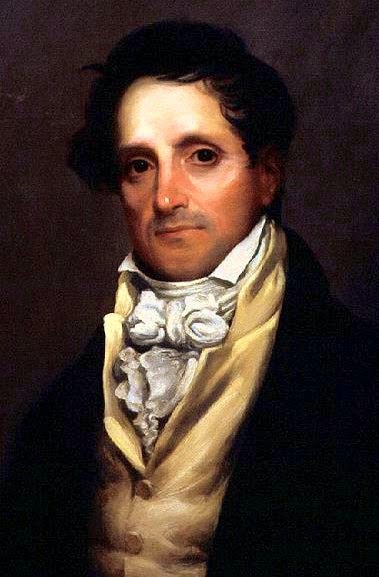The "unknown author" of this book was really James Kirke Paulding, by then the author of several published works, including Salmagundi, written with his friend Washington Irving. Paulding jokes in his "memoir" that the author, however, is meaningless to the enjoyment of reading. Knowing about authors and their habits, he says, is frivolous but "like buttons of cheese-paring on a satin doublet, become illustrious by the company they keep." Similar to Irving's various pseudonyms, like Geoffrey Crayon or Deidrich Knickerbocker, Paulding remains aloof as to his own identity, even suggesting that no image or signature of his is known to exist.
"The lives of literary persons are for the most part destitute of interest and adventure," he claims. Certainly, in other ages they "lived in garrets, and nothing was more common than to find them starved or frozen to death of a cold frosty morning." In what has become, he claims, a "golden age of authors," however, they are instead found in drawing rooms, making speeches, and are often elevated to a similar place in society as a member of Congress. As for the author of this particular book, Paulding teases that his origins are unknown, including the year of his birth, or even where he was born — possibly a place called "Republic of Elsewhere."
As he grew up, he was then taught by the best of all teachers: "self." His schooling abruptly ended, however, in marriage. Following this, he "pursued the bent of his genius a year or two in doing nothing." Idleness, however, soon made him a philosopher and he spent much time in deep thought until, finally, his thoughts were ended by going to college. Eventually he finds a job, though it is forgotten what he did, though he was not good at it, whatever it was. He stayed for a time at an inn which had a sign with a woman lacking a head, which the owner called "A Good Woman" — the inspiration for the title of the book. The author, however, has long since died, and his literary works are only now being offered to the public. All this information, however, comes from the somewhat dubious testimony of the unreliable (fictional) Abraham Acker. The point, however, is that the story of the author is not relevant to the stories in the collection, which equally have little to do with real people:
To that class of ill-natured and prying readers, which is ever finding out personal allusions and individual characters in the most innocent generalities, we will content ourselves with stating that our author certainly died at least ten years ago, according to the testimony of Mr. Acker, who has some idea of having attended his funeral. This single fact, we trust, will serve to do away all suspicion of any allusion to the fashionable society of the present day, since everybody knows that a very large portion of those who figure as leaders in the beau monde at present were utterly unknown at that time.

No comments:
Post a Comment
Note: Only a member of this blog may post a comment.